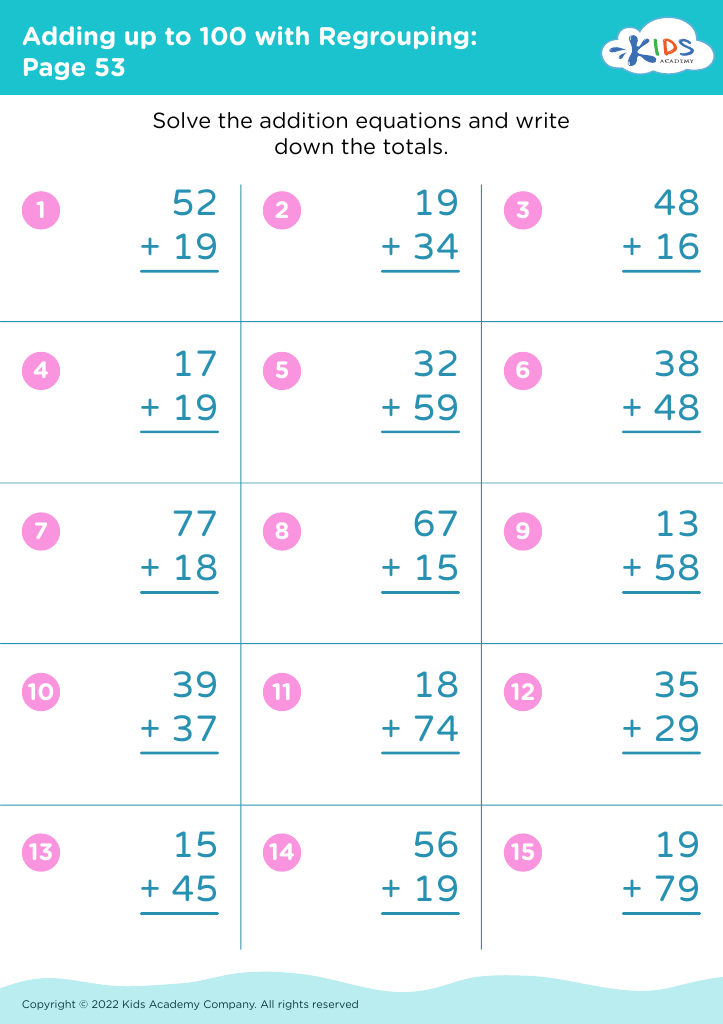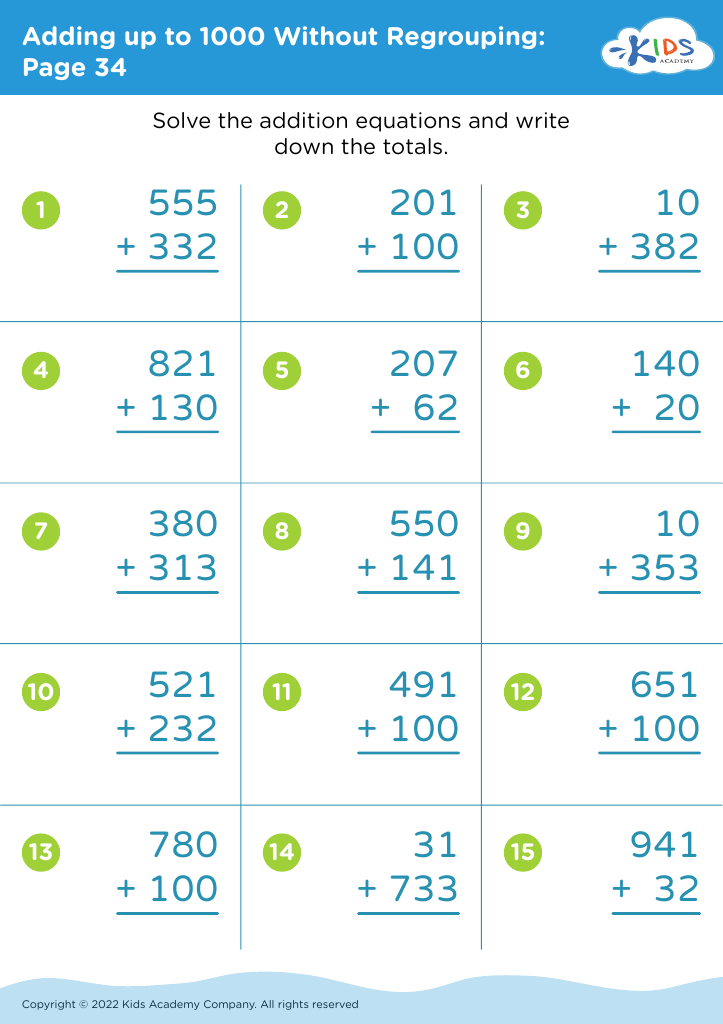Improve problem-solving Addition & Subtraction Worksheets for Ages 6-8
4 filtered results
-
From - To
Unlock your child's mathematical potential with our expertly designed "Improve Problem-Solving Addition & Subtraction Worksheets" tailored for ages 6-8! These interactive sheets introduce young learners to essential strategies for tackling addition and subtraction problems, boosting their confidence and enhancing their critical thinking skills. Vibrant graphics and engaging exercises make learning an exciting adventure, while step-by-step guidance ensures a solid grasp of foundational math concepts. Ideal for both classroom use and at-home practice, our worksheets are perfect for building strong, proficient problem-solvers equipped for future academic success. Download now and watch your child's math skills soar!
Parents and teachers should prioritize improving problem-solving skills in addition and subtraction for children aged 6-8 as these foundational math concepts are critical for their overall cognitive development. At this pivotal age, children transition from recognizing numbers to performing basic arithmetic operations, which helps establish their numerical understanding and reasoning skills. Mastering addition and subtraction not only reinforces their grasp of math but also enhances their ability to approach problems systematically, fostering logical thinking.
By developing strong problem-solving abilities early on, children gain confidence in tackling more complex mathematical challenges in the future. This confidence is crucial as it reduces math anxiety—a common barrier to academic success—and encourages a positive attitude towards learning. Additionally, students with solid arithmetic skills are better equipped to engage in everyday tasks, such as managing money or understanding time, which promotes independence and real-world competence.
Teachers should use a variety of visual aids, interactive activities, and practical scenarios to contextualize these concepts, making them relatable and enjoyable. Parents can support learning by incorporating simple math games and daily-life math examples. Together, these efforts ensure that children cultivate a robust fundamental ability in mathematics, paving the way for academic success and practical problem-solving skills in their later years.
























